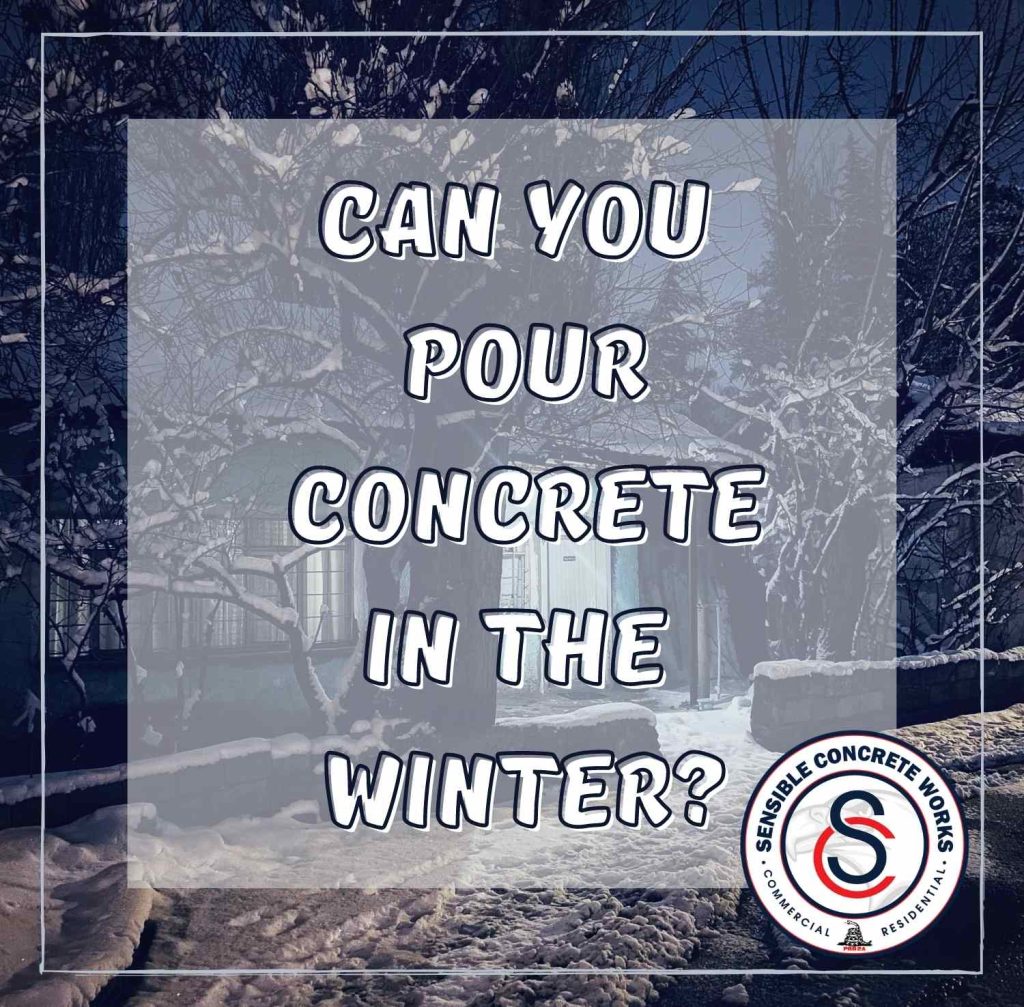It is Winter in East Tennessee. You need a driveway or concrete slab poured now. But, can concrete be poured in winter with any guarantee of success? Yep.
If certain precautions are taken along with consideration of weather conditions, concrete can be poured in the winter. Well, probably not in Alaska…. but, hey, we are talking Tennessee.
Since Sensible Concrete works exclusively in the Sevierville, Gatlinburg, Pigeon Forge, and surrounding areas, we are well-versed in the process of pouring concrete in winter! While it does become a bit more challenging in colder weather, we know exactly how to plan and prepare for a successful pour.
DID YOU KNOW:
- To properly set and reach maximum strength, fresh concrete must be protected from freezing for at least the first 24 hours, and 48 hours is preferred for the correct chemical reactions to take place.
- The American Concrete Institute (ACI) says the best temperature to pour concrete is between 50-60 °F. Why? Because the necessary chemical reactions that set and strengthen concrete slow significantly below 50 °F and are almost non-existent below 40 °F.
- Concrete that freezes when it is fresh, or before it has cured to a strength that can resist the expansion associated with the freezing water, will suffer a permanent loss of strength. Early freezing can reduce the final strength of the concrete by up to 50 percent.
THINGS TO CONSIDER WHEN POURING CONCRETE IN WINTER
Before starting a cold weather pour, Sensible Concrete knows it is important to plan and prepare. Done properly, concrete poured in cool weather is actually stronger than concrete poured in hot weather, thanks to the slow curing period.
:
- During cold weather, preheating either or both of the main ingredients: the water and/or the aggregate, can ensure that the proper concrete temperature is present during the pour.
- Generally, ready-mix concrete trucks leave a plant at about 65 °F.
- Avoid using fly ash or slag cement in cold weather. These materials set up more slowly and generate less internal heat.
- Where forms are used, leave them in place as long as possible since they will retain heat and help prevent the concrete from drying too quickly.
So, don’t despair that colder weather is coming and you still need concrete work to be done to move forward! Sensible Concrete KNOWS how to do it, and is ready to give you a free quote to get you on your way! Give us a call!




